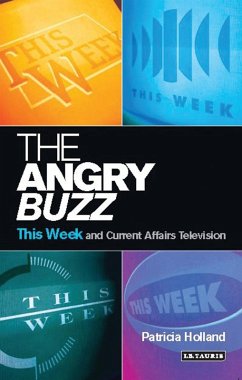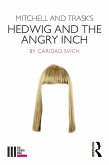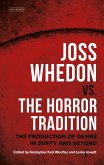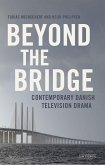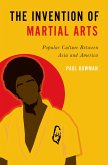Current affairs television in the UK, in more than half a century of programmes, has set out to tell us something we didn't know, treating its audience as citizens with the right to demand that 'something must be done'. Over their 36 year history, the current affairs series "This Week" and its replacement "TVEye", helped to mark out that democratic project. This is the story of "This Week", one of the few giants of the genre, set within the wider pattern of 'the angry buzz' of inquiry and dissent that is current affairs television. This is a particularly timely tale, now that many fear that current affairs may be an endangered species. Patricia Holland follows "This Week" from its beginnings in the 1950s as a light magazine programme with some serious moments, through the challenging programmes of the 1970s - which brought home the reality of poverty at home, famine in Africa and accusations of torture in Northern Ireland. The story continues right up to its demise in 1992, often blamed on its controversial programme "Death on the Rock" on the shooting of IRA terrorists in Gibraltar.
She shows how "This Week" covered the spectrum of public affairs and social issues in an uncompromising way, which regularly brought it into conflict with the authorities. She also brings to life people with a real sense of purpose and commitment and the realities of digging behind the headlines against a highly charged international political backdrop. "The Angry Buzz" also explores the development of current affairs journalism. It looks at the scope of the current affairs agenda; the practice of responsible journalism, while producing attractive programmes; regulation and public service television; 'tabloidisation' and dumbing down; and issues for women working within a genre largely dominated by men. This history of "This Week" and current affairs journalism is a live history, which does not remain in the past, but has a real purchase on the present - and the future.
She shows how "This Week" covered the spectrum of public affairs and social issues in an uncompromising way, which regularly brought it into conflict with the authorities. She also brings to life people with a real sense of purpose and commitment and the realities of digging behind the headlines against a highly charged international political backdrop. "The Angry Buzz" also explores the development of current affairs journalism. It looks at the scope of the current affairs agenda; the practice of responsible journalism, while producing attractive programmes; regulation and public service television; 'tabloidisation' and dumbing down; and issues for women working within a genre largely dominated by men. This history of "This Week" and current affairs journalism is a live history, which does not remain in the past, but has a real purchase on the present - and the future.

